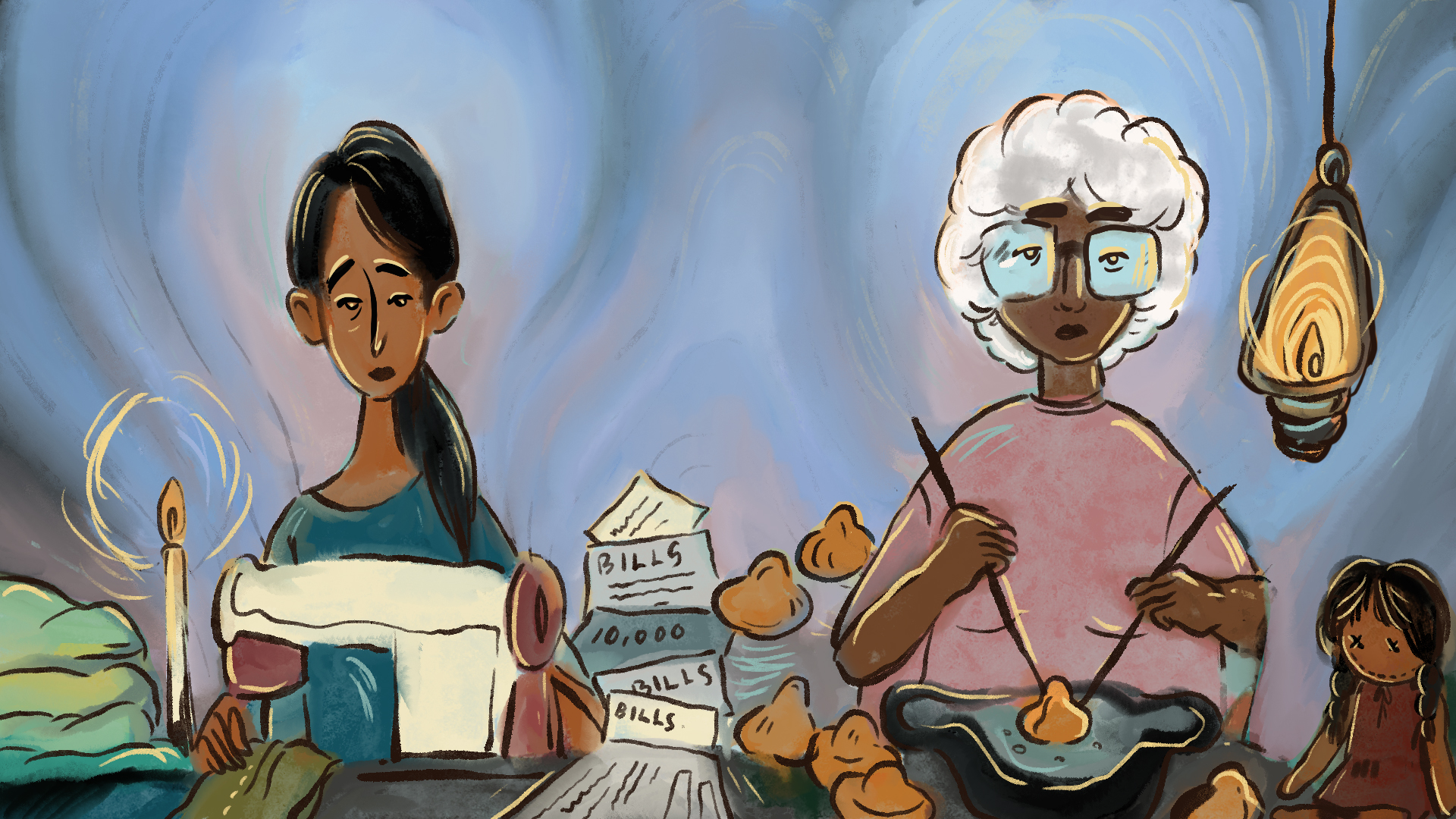Unstable livelihoods, economic disparity and the informal working sector
Everyday realities of Colombo
August 31, 2023

In Sri Lanka, the challenges faced by low-income individuals regarding unstable livelihoods, economic disparity, and the informal working sector remain pressing issues. Through insightful interviews with Lanka and Rathnawathi, residents of Homagama and Kotte, respectively, we gain valuable perspectives on the everyday struggles endured by many in their pursuit of sustainable livelihoods. Their stories shed light on the impact of economic fluctuations, limited access to formal employment, and the need for more robust support systems in the country.
Lanka, a 32-year-old seamstress residing in Homagama, Colombo, provides a firsthand account of the hardships faced by individuals working in the informal sector. As an unregistered worker in a family-owned tailor's shop, Lanka experiences fluctuations in her income. Dependent on the availability of work, her earnings vary greatly from month to month. Last month, she earned just over LKR 14,000, making it challenging to support her family of three—her husband, her four-year-old son and herself.
While Lanka's husband works in a formal position with a monthly salary of LKR 32,000, the recent reduction in work opportunities for both of them has strained their finances. Additionally, Lanka's employment status as an informal worker denies her access to benefits or social protections. The couple relied on temporary financial assistance from the Samurdhi Authorities for a brief period, but their experiences with unreliable support and lack of trust in the system leave them feeling vulnerable. However, Lanka does express gratitude for the financial support provided by her helpful neighbours during challenging times, signalling the benefits of community when more established routes disappoint.
Challenging times, in particular, nod towards the triple disasters that struck Sri Lanka—namely the Easter attacks, the hardships imposed by the COVID-19 pandemic, and the socio-political and economic situation in 2022. The restrictions on mobility and work during the pandemic affected their income and ability to sustain themselves. Furthermore, the fluctuating prices of goods and rising inflation rates exacerbate their financial struggles, making it increasingly difficult to make ends meet. Lanka's earnest desire is for basic essentials to be readily available for all Sri Lankans, promoting sustainable and dignified living conditions.
In Kotte, 56-year-old resident Rathnawathi shares her experiences of grappling with economic challenges. Formerly engaged in artistic woodworking and running a grocery store, she, too, has faced setbacks due to the poly-crisis. The household income supports herself, her sister and her husband, both who suffer from health issues. Her husband’s arthritic condition and sister’s long-term COVID symptoms limit their ability to work and make a sustainable living. Her 27-year-old son, who recently lost work as a pharmacist, also works informally using the skills he has studied and picked up. This is a telling feat that work is fickle and unreliable for people across generations from the hangover of Sri Lanka’s crises.
Forced to close her store amid COVID-19, Rathnawathi and her husband now rely on informally subletting their premises to a close friend to generate income for her family. She also engages in traditional sweet-making and sewing dolls for children to supplement their household income. Despite Rathnawathi’s wide array of work that she not only has an interest in but has a talent for, she has succumbed to work that brings in even a minimum amount of income. Her true passion is working in animal welfare, having rehomed dogs and stray animals with Embark- a non-profit organization that works to improve the well-being of street dogs.
Rathnawathi's household income of LKR 35,000 is strained, and the lack of significant support systems further compounds her struggles. The family received basic necessities and food from during the socio-economic situation in 2022 from the World Food Programme (WFP); however, Rathnawathi expresses uncertainty regarding the reliability of long-term support. Debts, both from her grocery store venture and her husband's loans, weigh heavily on her family's financial stability.
Both Lanka and Rathnawathi's stories highlight common challenges faced by low-income individuals in Sri Lanka, particularly in the face of unrestrained conflict and national issues. The impacts of the triple disasters—the Easter attacks of 2019, COVID-19 pandemic and unrest in 2022–further compound the struggles faced by these individuals and their families.
Despite the adversities they face, both Lanka and Rathnawathi harbour aspirations for a better future. Lanka yearns for more stable livelihood opportunities, reduced reliance on the government, and supportive local communities. Rathnawathi, on the other hand, wishes for reduced corruption, greater opportunities for younger generations, and intrinsic changes within the country's power structures.
The narratives shared by Lanka and Rathnawathi are significant in highlighting the instabilities Sri Lanka’s working class is forced to endure. By addressing these challenges, Sri Lanka can strive toward a more equitable and sustainable future for all its citizens.
*Names have been changed to protect the identity of the individual. This interview was conducted in June 2023 and the individual was a respondent of the National Citizen Survey 2022-3.

 Locations
Locations